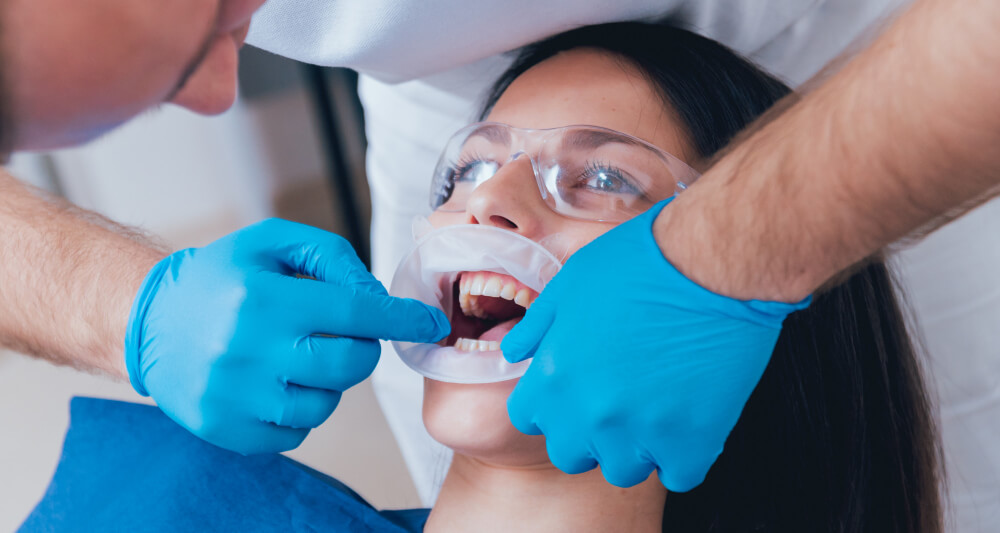The Role of Saliva in Oral Health
Saliva plays a vital role in maintaining oral health, acting as the mouth’s natural defense mechanism. Its importance extends beyond simple lubrication; saliva is integral to the prevention of tooth decay, the facilitation of digestion, and the maintenance of healthy soft and hard tissues in the mouth. For residents of Stamford, CT, understanding the functions of saliva and its impact on oral health can enhance daily dental care routines and aid in the prevention of conditions that may require advanced treatments such as root canal therapy.

The Composition of Saliva
Saliva is composed of 99% water, with the remaining 1% consisting of vital substances such as electrolytes, mucus, antibacterial compounds, and various enzymes. These components work together to perform a variety of functions:
Electrolytes like calcium, phosphate, and fluoride help in remineralizing tooth enamel.
Mucus provides lubrication, facilitating speech and swallowing.
Antibacterial compounds such as lysozyme and lactoferrin reduce bacterial growth in the mouth.
Enzymes like amylase and lipase initiate the digestion of starches and fats.
Functions of Saliva in Oral Health
Protection Against Tooth Decay
Saliva is essential in protecting teeth from decay. It helps in the remineralization process by supplying minerals that strengthen the enamel. Saliva also helps to neutralize acids produced by bacteria in the mouth, which can erode tooth enamel and lead to cavities.
Lubrication and Tissue Protection
By keeping the mouth moist, saliva prevents the drying out and cracking of oral tissues. This moisture is essential for comfort, allowing for easier speaking, chewing, and swallowing. Moreover, it forms a protective barrier on the oral tissues, reducing the risk of sores and infections.
Digestion
Saliva contains enzymes that begin the digestive process. Amylase breaks down starches into simpler sugars, aiding in digestion. This process begins in the mouth, making saliva an integral part of the digestive system.
Antibacterial Action
Saliva helps control the bacterial population in the mouth. Its antibacterial compounds prevent the overgrowth of harmful bacteria, reducing the risk of infections and gum disease. This antibacterial action is critical in maintaining a balanced oral microbiome.
Maintaining pH Balance
The buffering capacity of saliva helps maintain a neutral pH in the mouth. This balance is crucial because an acidic environment can lead to enamel erosion and increased susceptibility to decay.
Common Problems Related to Saliva
Despite its many benefits, issues with saliva production can lead to several oral health problems:
Xerostomia (Dry Mouth)
Xerostomia occurs when the salivary glands do not produce enough saliva. This condition can result from certain medications, systemic diseases, or radiation therapy for cancer. Symptoms include difficulty swallowing, speaking, and an increased risk of tooth decay and gum disease due to the lack of saliva’s protective functions.
Salivary Gland Disorders
Infections or blockages in the salivary glands can lead to pain and swelling. Chronic conditions like Sjögren’s syndrome, an autoimmune disease, can significantly reduce saliva production, leading to dry mouth and other oral health issues.
Enhancing Saliva Production
To support oral health, it’s important to maintain adequate saliva production. Here are some tips to enhance saliva production:
Stay Hydrated
Drinking plenty of water throughout the day helps maintain saliva production. Dehydration is a common cause of dry mouth.
Chew Sugar-Free Gum
Chewing gum stimulates the salivary glands to produce more saliva. Choose sugar-free options to avoid the risk of tooth decay.
Maintain Oral Hygiene
Good oral hygiene practices can stimulate saliva flow and reduce the risk of infections that might impair the salivary glands.
Use Saliva Substitutes
Over-the-counter saliva substitutes and mouthwashes designed for dry mouth can provide temporary relief.
Avoid Tobacco and Alcohol
Tobacco and alcohol can dry out the mouth and reduce saliva production. Reducing or eliminating these substances can help maintain a healthy saliva flow.
Saliva and Dental Treatments
Saliva plays a significant role in the success of various dental treatments. For instance, during Root Canal treatment in Stamford, CT, a dry mouth can complicate the procedure and hinder the healing process. Adequate saliva flow helps ensure a sterile environment and supports tissue repair.
Patients undergoing Root Canal treatment in Stamford, CT, should be aware of the importance of saliva in their overall oral health. Maintaining healthy saliva production can aid in the prevention of further complications and enhance recovery post-treatment.
Conclusion
Saliva is a crucial component of oral health, contributing to the prevention of tooth decay, the protection of oral tissues, and the facilitation of digestion. For residents of Stamford, CT, maintaining healthy saliva production is essential for avoiding advanced dental procedures such as root canal therapy. By understanding the functions of saliva and taking steps to enhance its production, individuals can improve their oral health and reduce the risk of dental issues.
For those in need of advanced dental care, such as Root Canal treatment in Stamford, CT, it’s important to consult with professionals like Dr. Amul Patel at Aurora Smiles. By prioritizing saliva health and seeking timely dental care, you can ensure a healthier and more comfortable oral environment.
